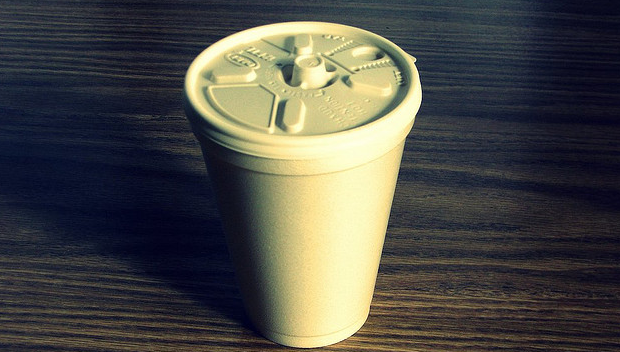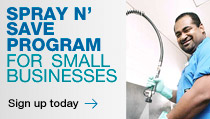Question: Does packaging really attract or put off potential customers for businesses?
Answer: The environmentally friendly, green-thinking, sustainability valuing customer will pay attention to details like the packaging in both the retail and foodservice industries.
The dilemma for businesses is this: wasteful packaging is often easier to market and an overall easier business decision to make because the environmentally conscious route is generally more costly and arguably less aesthetically pleasing.
While this is a big issue, we’ll try to provide some simpler insight to consider when making business decisions.
Paper or foam — the disposable cup debate
Weighing in on environmental impact is complicated. For example, some may argue that Styrofoam (polystyrene) is horrible for the environment as an end result. However, the process of making it has been said to be less energy-intensive while consuming less water than paper (which is biodegradable). When it comes to packaging waste, it’s about doing a lot of research, taking a deep interest in supply chains, and weighing out which evil is less offensive to your business.
It’s hard to say (and there’s no scientific method to prove), which environmental impact is greater than the other.
According to The Boston Globe, foam cups rely on 4,748 gallons of water to make 10,000 foam cups, while paper cups need 8,095 gallons of water for the same amount of cups. Polystyrene cups of this amount use 5.4 million BTUs (or 450 pounds of coal) while paper cups use 6.5 million BTUs (542 pounds of coal).
However, the carbon emissions is higher for foam and, as discussed in BizEnergy’s story of banning plastic takeout containers — even in 500 years from now that foam will be sitting in the landfill.
Encouraging customers to bring a personal mug or thermos with a price reduction (which would go towards packaging costs anyway) would be the best green alternative for a green business. This is a sustainable trend we’d like to see.
Packaging waste for retailers
The Guardian recently published an excellent piece that looks into the challenges of wrapping many common products consumed by the average person in Good product, bad package: top sustainable packaging mistakes.
From single-serving foods to toothpaste, bags of chips to pizza boxes — The Guardian offers facts about the problem with packaging but also provides thoughtful alternatives as a solution to better the waste situation.
The environmentally conscious consumer will look for these things and respect a business who is in the know — and will respect a company who can explain their packaging waste decisions.
For businesses curious about their energy efficiency, we offer both a free Energy Audit and Incentives.
Image credit: Dewayne Neeley



















